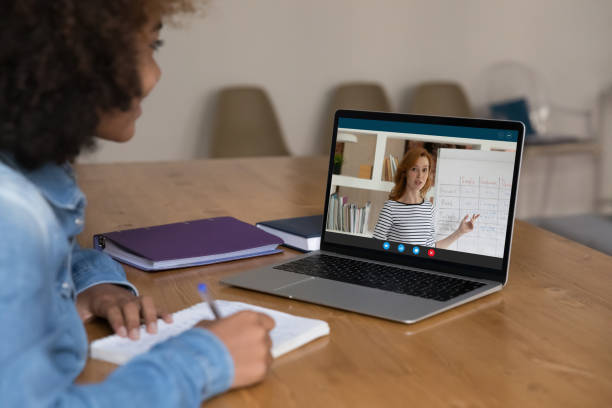How to Win a Commonwealth Scholarship
Winning a Commonwealth Scholarship can be a life-changing opportunity for international students from low and middle-income Commonwealth countries. It offers full funding to pursue a Master’s or PhD program in the United Kingdom, covering tuition fees, airfare, and living expenses.
But the competition is stiff, and only the best-prepared applicants win.
In this blog post, I’ll walk you through everything you need to know about the Commonwealth Scholarship, including eligibility, how to apply, tips to stand out, and common mistakes to avoid.
✨ What is the Commonwealth Scholarship?
The Commonwealth Scholarship is a prestigious award funded by the UK Foreign, Commonwealth & Development Office (FCDO) and administered by the Commonwealth Scholarship Commission (CSC).
It aims to support talented individuals who could not otherwise afford to study in the UK, helping them contribute to the development of their home countries after graduation.
There are different types of Commonwealth Scholarships, but the most common are:
- Commonwealth Master’s Scholarships
- Commonwealth PhD Scholarships
- Commonwealth Shared Scholarships (jointly funded by UK universities)
✅ Who is Eligible?
To be eligible for the Commonwealth Scholarship, you must:
🔹 Be a citizen or permanent resident of a Commonwealth country
Eligible countries include Nigeria, India, Pakistan, Ghana, Kenya, Bangladesh, and many others. (Full list available on the CSC website.)
🔹 Have an upper second-class (2:1) undergraduate degree
For Master’s programs, you must have at least a 2:1 bachelor’s degree. For PhD scholarships, a Master’s degree is usually required.
🔹 Be unable to afford to study in the UK without the scholarship
You must prove financial need.
🔹 Submit all required documents and references
Including transcripts, university admissions offer (for some programs), and two reference letters.
🔹 Apply under one of the CSC’s six development themes:
- Science and technology for development
- Strengthening health systems
- Promoting global prosperity
- Strengthening global peace, security, and governance
- Strengthening resilience and response to crises
- Access, inclusion, and opportunity
📝 How to Apply for a Commonwealth Scholarship (Step-by-Step)
Step 1: Choose Your Course and UK University
- Select a relevant Master’s or PhD course in the UK.
- Ensure the university and course are eligible under the Commonwealth program.
- You can apply to more than one university.
Step 2: Check if Your Country Has a Nomination Body
- Most countries require applicants to apply through a nominating agency (usually the Ministry of Education or a national scholarship board).
- Some countries allow direct applications through the CSC portal.
Step 3: Apply Online via CSC Application System
- Create an account at: https://cscuk.fcdo.gov.uk/apply/
- Upload:
- Academic transcripts
- Proof of citizenship
- Two reference letters
- Statement of purpose / Development impact statement
Step 4: Apply to Your Nominating Agency (if applicable)
- Most countries have their own application process alongside the CSC.
- Examples:
- Nigeria: Apply through the Federal Scholarship Board.
- India: Apply via the Ministry of Education.
- Follow the deadlines set by your country, which may be earlier than CSC’s deadline.
Step 5: Secure Admission into a UK University
- For some scholarships (e.g., Shared Scholarships), you must get a university offer letter before the CSC deadline.
- Apply to the university separately and track your application progress.
🧠 How to Write a Strong Commonwealth Scholarship Application
Winning applicants usually stand out because they:
🔹 Align with Development Goals
Show how your course will help solve challenges in your home country, like poverty, education, public health, or governance.
🔹 Write a Powerful Development Impact Statement
Explain:
- What problem you want to solve
- How the scholarship will help you
- How you’ll return and give back to your country
🔹 Provide Strong References
Choose referees who know your academic and leadership potential well. Provide them with a summary of your achievements to help them write meaningful recommendations.
🔹 Highlight Leadership and Community Involvement
Mention volunteer work, leadership positions, or impactful projects.
🔹 Demonstrate Academic Excellence
Back your application with excellent grades, awards, and research experience.
📌 Required Documents
- Valid passport or national ID
- Official academic transcripts
- University degree certificates
- Two recommendation letters
- Admission letter (if applicable)
- Proof of English proficiency (in some cases)
- Development impact statement
📅 Timeline (Typical Dates)
| Phase | Timeframe |
|---|---|
| Application opens | September – October |
| Deadline for submission | Late October – Early December |
| Interviews (if applicable) | February – March |
| Final selection | April – May |
| Course begins in UK | September |
Always confirm the exact dates on the official website or your country’s nominating agency portal.
❌ Common Mistakes to Avoid
- Applying without checking if your course is eligible
- Missing the country nomination deadline
- Submitting weak or generic personal statements
- Choosing referees who don’t know you well
- Not proofreading your application
💬 Final Thoughts
Winning a Commonwealth Scholarship requires strategy, preparation, and a compelling story. It’s not just about having good grades—it’s about showing how your education will create real change in your country and beyond.
If you’re passionate about development and have a strong academic record, go for it! This scholarship could be your ticket to a world-class education and a future of impact.
Frequently Asked Questions – FAQs
1. Is the Commonwealth Scholarship fully funded?
Yes, the Commonwealth Scholarship is fully funded. It typically covers tuition fees, airfare to and from the UK, a monthly living allowance, thesis grant (if applicable), and additional allowances for study-related travel and warm clothing.
2. Can I apply for the Commonwealth Scholarship without an admission offer from a UK university?
It depends on the scholarship type:
- Commonwealth Master’s and PhD Scholarships: You can apply without an offer but must apply to eligible UK universities.
- Commonwealth Shared Scholarships: You must have an admission offer from a participating university and course.
3. Can I apply for multiple Commonwealth Scholarships?
You can only apply for one type of Commonwealth Scholarship per academic year. However, you can apply to multiple UK universities and through different nominating bodies if eligible.
4. What is the age limit for applying?
There is no official age limit, but most successful applicants are early to mid-career professionals. Your academic qualifications, development potential, and leadership are more important than your age.
5. Do I need to take the IELTS or TOEFL exam?
English proficiency is often required by UK universities, but it is not a requirement of the Commonwealth Scholarship Commission itself. You must meet the language requirements of your chosen UK university.
6. How do I get a nominating agency in my country?
Check the list of nominating agencies on the CSC website. Most agencies are national scholarship boards or education ministries. They will have their own application procedures and deadlines.
7. How competitive is the scholarship?
Extremely competitive. Thousands apply annually, and only a few hundred are selected. A strong academic record, leadership qualities, community involvement, and a compelling development impact plan increase your chances.
8. Can I bring my family with me if I win the scholarship?
Yes, but the Commonwealth Scholarship does not cover dependent/family costs. You will need to show proof of funds to support your family independently.
9. Can I stay in the UK after completing the scholarship?
The scholarship requires that you return to your home country for at least two years after your studies. The aim is to help you contribute to the development of your nation.
10. Can I reapply if I was not selected?
Yes! Many successful scholars were not selected the first time they applied. Use the experience to strengthen your next application with better documents, a clearer development plan, or improved academic achievements.
ALSO READ: Free Coding Classes for Beginners






